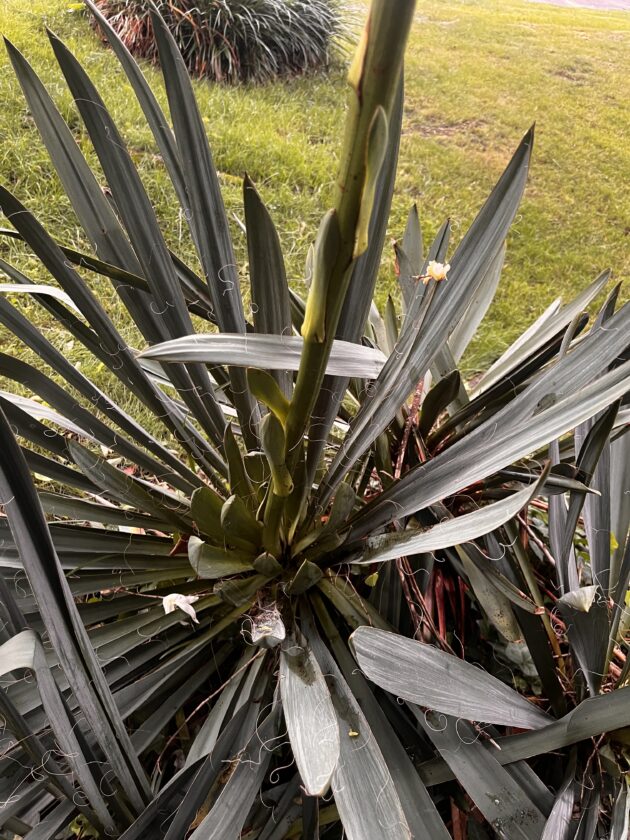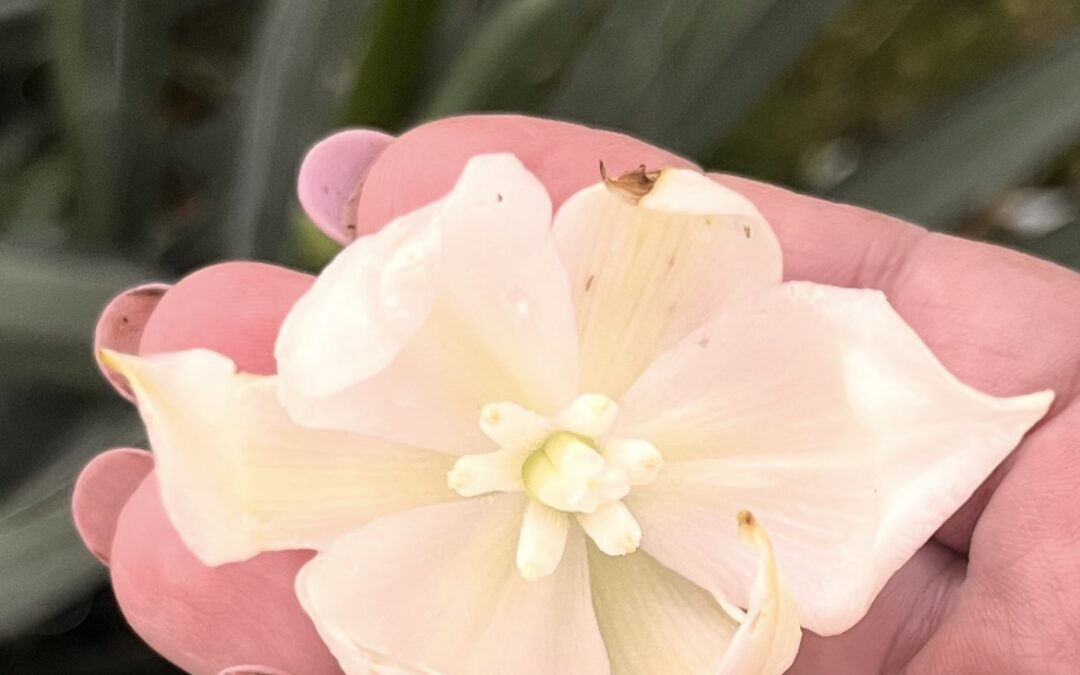This time of year, hot weather and a busy schedule may have you looking for a care-free, drought tolerant plant to add to your landscape. Yuccas are no-fuss plants that practically take care of themselves, once established. Though this perennial shrub looks like an exotic cactus that belongs in a desert, the yucca species known as Adam’s needle (yucca filamentosa) is native to New Jersey and perfectly suited for our dry, sandy soil. This yucca is the perfect coastal plant, able to grow on sand dunes, because it is not only extremely drought tolerant, but is also tolerant of salt spray.
A member of the agave family, you will want to plant your yucca in full sun with well-drained soil. Use caution near the rosettes of sword-like leaves that have the unique characteristic of peeling off at the edges into curly fibers. The towering spike which can grow 3 to 8 feet tall will produce dozens of snow-white bell flowers. Adam’s needle will attract hummingbirds and bees and serves as a host plant for various moths and butterflies, including the white yucca moth and the yucca giant-skipper. The white yucca moth has a unique symbiotic relationship with the yucca plant. The female moth will go from male yucca flower to female yucca flower, feeding on the nectar, and rolling the pollen into a ball. She then deposits the pollen in a female flower and lays her eggs, pollinating the plant in the process. Once hatched, the larvae of the moth feed on the seeds of the flower, leaving enough viable seeds for the plant to reproduce.

In my own garden, we had several yucca plants in place when we bought our house over 20 years ago. They are especially beautiful when blooming. My Scottish friend and fellow gardener, Esther, was not a fan of them and actually referred to them as “yuck-a’s”. Sadly, I can no longer ask her why she didn’t like them. We all think we will have more time with our loved ones. If I had to guess at her distaste for this plant, it would be because her garden was more of an English cottage garden style. But if she had known about the mutually beneficial relationship between the plant and moth, I know her love of nature would have changed her mind. The flowers of the yucca plant are edible, but the sap from the leaves can cause an allergic reaction. Yuccas are deer resistant, and toxic for dogs and cats.
We would love to hear from our readers. Have you grown Adam’s needle yucca in your garden? Hopefully you will see the benefits of growing this drought-resistant, easy-care, native perennial shrub that can benefit birds, bees, butterflies, and moths. Send your comments and questions to: shorelocalgardener@gmail.com.
Tammy Thornton lives with her husband, children, and crazy pets while enjoying a life of gardening, cooking, and going to the beach.


















